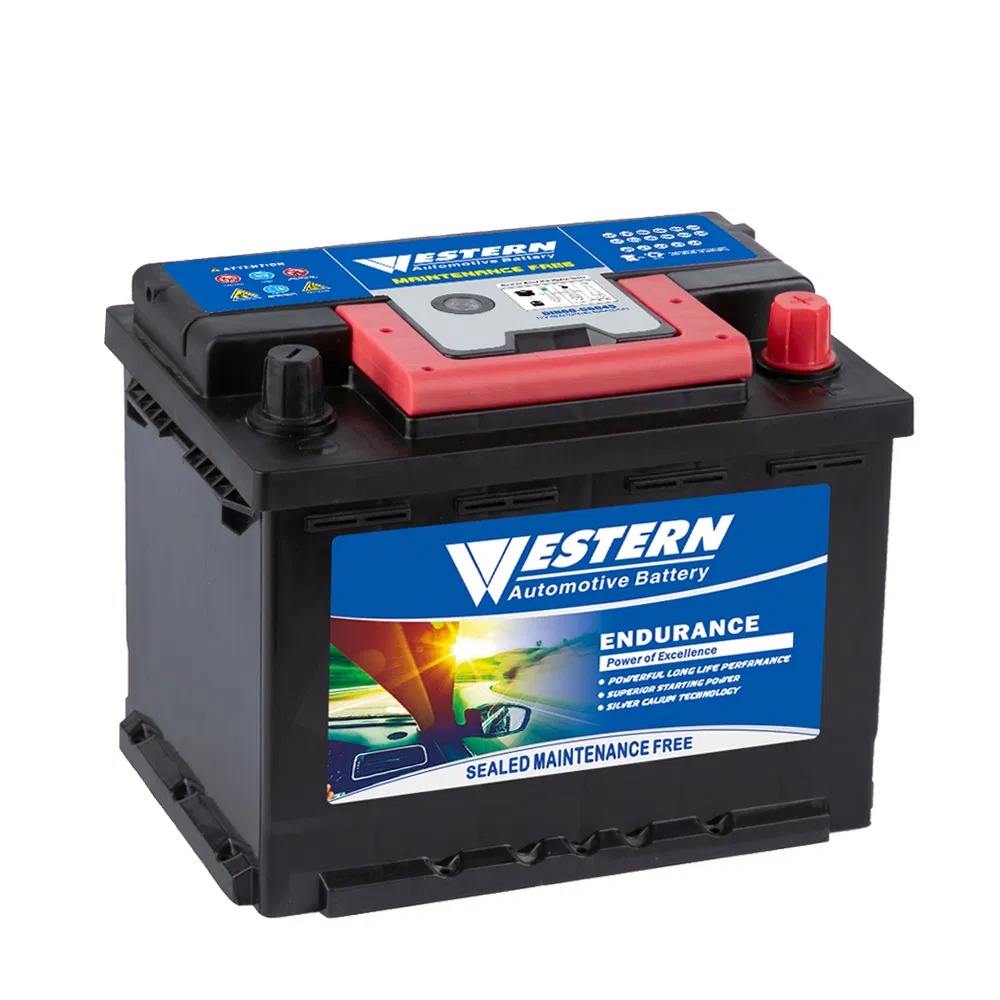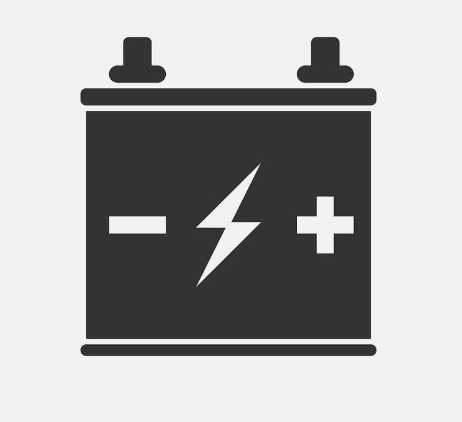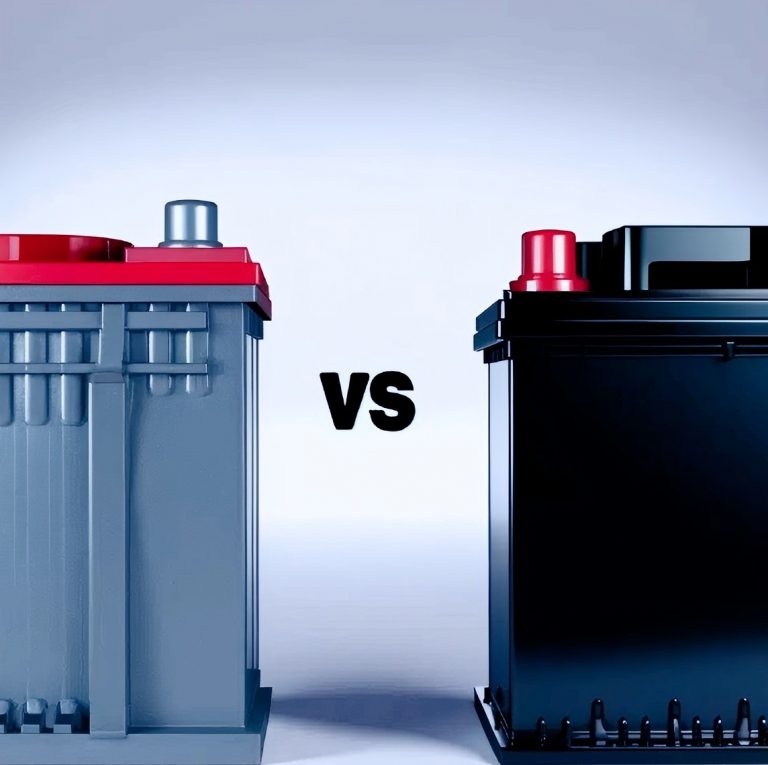Wie lange dauert eine 12 -V -Batterie?? Die ultimative Anleitung für 12 -V -Batterien
Introduction
12V Batterien are widely used in automotive, Marine, Solar-, und Backup -Stromanwendungen. Aber wie lange dauern sie?? Was beeinflusst ihre Leistung? Und wie können Sie eine hochwertige 12-V-Akku auswählen?? Dieser Leitfaden deckt alles ab, was Sie über die 12 -V -Batterielebensdauer wissen müssen, Arbeitszeit, und Qualitätsfaktoren.
Wie lange dauert eine 12 -V -Batterie??
Der lifetime of a 12V battery depends on the type, usage, und Wartung. Here’s a general breakdown:
- Blei-Säure-Batterien: 3–5 Jahre (Flooded, Hauptversammlung, Gel)
- Hauptversammlung & Gelbatterien: 4–7 Jahre (Deep-cycle capable)
- Lithium-Ion Batteries: 8–10 years (Higher efficiency and more charge cycles)
Lifespan is also influenced by charging habits, discharge cycles, und Umweltbedingungen. Proper care can extend a battery’s longevity significantly.
How Long Does a 12V Battery Work Per Charge?
A battery’s Arbeitszeit depends on its Ah (amp-hour) Bewertung Und power consumption. The table below estimates the runtime for different 12V batteries at a steady 10A discharge rate:
| Akku-Typ | Kapazität (Ah) | Estimated Runtime at 10A (Std.) | Lebensdauer (Jahre) |
|---|---|---|---|
| Lead-Säure (FLA) | 35Ah | 3–3.5 hours | 3–5 Jahre |
| Lead-Säure (FLA) | 50Ah | 4–5 hours | 3–5 Jahre |
| AGM -Batterie | 55Ah | 5–5.5 hours | 4–7 Jahre |
| AGM -Batterie | 75Ah | 6–7.5 hours | 4–7 Jahre |
| Gel-Batterie | 80Ah | 8–8.5 hours | 4–7 Jahre |
| Gel-Batterie | 100Ah | 9–10 hours | 4–7 Jahre |
| Lithium-Ion | 50Ah | 4.5–5 hours | 8–10 years |
| Lithium-Ion | 100Ah | 9–10 hours | 8–10 years |
| Lithium-Ion | 200Ah | 18–20 hours | 8–10 years |
Notiz: Higher Ah means longer runtime, but actual performance varies based on load, Temperatur, and battery efficiency.
What Factors Affect 12V Battery Life and Working Time?
Several factors impact how long a 12V battery lasts and how well it performs per charge:
1. Akku-Typ & Chemistry
- Blei-Säure-Batterien (Flooded, Hauptversammlung, Gel) degrade faster than lithium-ion.
- Lithium-Ionen (LiFePO4) batteries last longer and provide more usable capacity.
2. Depth of Discharge (DoD)
- Lead-acid batteries last longer if not discharged beyond 50%.
- Lithium batteries handle up to 90% DoD with minimal lifespan reduction.
3. Charge Cycles
Each full charge and discharge cycle reduces battery life:
- Lead-Säure: 300–1000 cycles
- AGM/Gel: 500–1200 cycles
- Lithium-Ion: 2000–5000 cycles
4. Charging & Discharging Efficiency
- Overcharging Und deep discharging can damage a battery.
- Smart chargers prevent overcharging and increase longevity.
5. Temperature Effects
- Extreme heat (>40°C/104°F) accelerates degradation.
- Extreme cold (<0°C/32°F) reduces capacity but doesn’t permanently damage lithium.
6. Wartungsanforderungen
- Flooded lead-acid requires regular water refilling and cleaning.
- Hauptversammlung, Gel, and Lithium are Wartungsfrei.
What Influences the Quality of a 12V Battery?
Quality determines how well a battery performs over time. Here are the key factors:
1. Battery Chemistry & Typ
- Lithium-Ion (LiFePO4) > AGM/Gel > Überschwemmte Bleisäure in terms of lifespan and efficiency.
2. Manufacturing Materials & Build Quality
- Thicker lead plates in lead-acid improve durability.
- High-purity electrolyte reduces self-discharge.
- Fiberglass mats or silica gel enhance AGM and Gel batteries’ stability.
3. Kapazität & Energiedichte
- High-quality batteries deliver true Ah ratings (cheap models often exaggerate specs).
- Lithium batteries have higher energy density than lead-acid, meaning more power in a smaller size.
4. Interner Widerstand & Efficiency
- High-quality batteries lose less energy as heat.
- Cheap models have higher internal resistance, leading to faster discharge and voltage drops.
5. Zyklusleben & Depth of Discharge Handling
- Lithium batteries support more cycles and deeper discharge.
- Lead-acid batteries degrade if regularly discharged below 50%.
6. Temperature Resistance
- Premium batteries have better thermal stability.
- Hauptversammlung & Lithium perform better in cold conditions than flooded lead-acid.
7. Brand Reputation & Zertifizierungen
- Trusted brands (Z.B., Optima, Trojan, VARTA, Battle Born) ensure high build quality.
- Look for ISO 9001, UL, Ce, RoHS certifications.
8. Protection Features & Battery Management System (BMS)
- Lithium and some AGM batteries include BMS to prevent overcharging, Tiefentladung, and overheating.
- Shock & Vibrationswiderstand is essential for automotive and marine use.

















